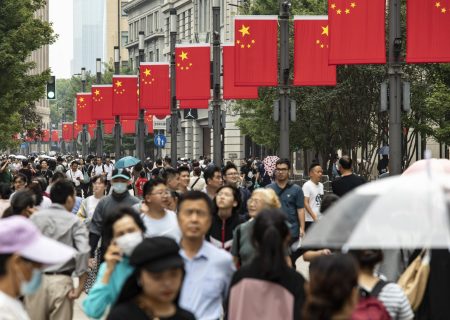For the past 11 years the South African government has pursued a policy of austerity. In recent years, government has reduced per capita spending (adjusted for inflation) by significant amounts. Spending on public services, for example, health and education, for each member of the population has fallen since 2019, from about R30 000 to about R28 000 in 2023.
National Treasury has confirmed the deterioration in public spending and investment.
But the austerity approach hasn’t worked. Unsurprisingly, the government has little to show for it. Per capita debt service costs continue to constrain the resources available for funding the works of the state. Government debt service costs are estimated to average R412.4 billion per year over the next three years, which is more than other spending areas such as health and education.
In light of this, it is important that the government moves away from the old approaches. Now is not the time for more austerity.
The creation of a government of national unity after the country’s recent elections presents the perfect opportunity for a new approach.
To frame our argument, we quote the renowned economist John Maynard Keynes:
The boom, not the slump, is the right time for austerity at the treasury.
South Africa is in a slump, having experienced more than a decade of weak economic growth. GDP growth has
averaged only 0.8% annually since 2012, entrenching high levels of unemployment and poverty. As a result the government must reflect on the allocation of public resources for the wellbeing and future of all South Africans.
Enoch Godongwana, the finance minister, will have such an opportunity in October when he tables the unity government’s first medium-term budget policy statement. The statement outlines government fiscal policy and the choices the government has made about what to invest in and what to borrow.
Budgets matter. Increasing public investment in key sectors can boost employment, support economic growth, provide a way out of an economic slump and protect people’s wellbeing (a necessary condition for any economy to grow sustainably).
Based on research by the Southern Centre for Inequality Studies at the University of the Witwatersrand over the past two years, we argue that the government should draw on evidence that investment in key sectors – care (health, education and childcare and social development), green economy and public infrastructure – can help to deliver on the promise of 1994 when the country became a democracy. That of healing the injustices of the past and improving the quality of life of all citizens.
These three forms of investment could generate new jobs and help build a more equitable society. They are the basis for the future of South Africa. Without taking care of the country’s children, the economy will not grow. Without thinking about the environment, money won’t buy clean air. Without infrastructure and service delivery, sustainable economic growth will not happen.
What needs fixing
South Africa continues to grapple with unemployment, inequality, poverty and shocks associated with climate change. In the second quarter of 2024, unemployment climbed to 33.5% and, when using Statistics South Africa’s expanded definition, which includes discouraged job seekers, the unemployment rate increased to a staggering 42.6%.
Then there are concerns about economic growth. Real gross domestic product (GDP) grew only narrowly in the second quarter of this year, at 0.6%. The costs of living increased by 5.3% in the same time period.
Why austerity isn’t the answer
Warnings of public debt and public expenditure are often used as an argument to justify why fiscal stimulus (the term used to refer to public investment) cannot be pursued. South Africa is no exception.
However, the logic of austerity would mean that we choose not to invest in South African citizens, contrary to the mandate of the constitution.
Cutting the social wage – spending on health, education,
social protection, community development and employment programmes – is against the evidence of existing demands on social programmes in the country. It also flies in the face of evidence that cuts to public investment can lead to higher public debt, undermine development, and lead to unrest. The concerns about public debt, in and of themselves, do not justify cutting the social wage and investments in the future.
Failing service delivery is one of the symptoms of the deterioration in public spending and investment in the capacity to run governments. That’s due to budget reductions and, in some cases, corruption. This creates a vicious cycle, worsening unemployment, poverty and inequality.
Making the state work cannot mean imposing austerity alone (opportunists, corrupt actors and the like will adjust to any ideology). Instead there’s a need to move away from austerity to make the state work for the wellbeing of South Africans. This should be the goal of any national unity budget.
South Africa has examples of beneficial public investment. For example, social grants have had positive effects. They protect people’s livelihoods. They also create an economic baseline from which individuals can contribute to society. The Presidential Employment Stimulus – which provides work and livelihood support opportunities for young unemployed South Africans – has shown promising outcomes for employability and positive effects on the economy.
The case for more spending
Our call for an increase in expenditure is not a proposal to support more “tenderpreneurs” – a South African term for business people who secure government contracts through political connections, or other money-capturing elites.
Rather, we’re making the case for using fiscal policy for the big push required to mobilise enough public investment to tackle the intersecting crises facing South Africa.
Research by Ozlem Onaran and Cem Oyvat, both economists at the University of Greenwich, shows that investment in care, green economies and public infrastructure is expected to have a strong positive effect on GDP and employment in both emerging and high-income economies.
Just 1% of yearly investment (as a ratio of GDP) in the care economy for five years is estimated to increase GDP by 6.9% and total employment by 8.8% over a five-year period.
Education, health, social development and childcare are at the core of the care economy. A green economy includes renewable energy, energy efficiency and public transport. Public infrastructure refers to gross fixed capital formation: investments in long-term assets like hospitals, clinics, roads and equipment that will help improve services.
Investing in care, the green economy and infrastructure would be mostly self-financing because it could generate revenues.
The way forward
Cuts to public investment can actually lead to higher public debt, undermine development avenues and democracy, and lead to unrest.
If South Africa’s government of national unity is serious about addressing the economic and social challenges facing the country in the quest for a better future for all, it should heed the evidence.![]()
Thokozile Madonko, Research Manager, University of the Witwatersrand and Fabio Andrés Díaz Pabón, Research Fellow, African Centre of Excellence for Inequality Research (ACEIR), University of Cape Town
This article is republished from The Conversation under a Creative Commons license. Read the original article.
Follow Moneyweb’s in-depth finance and business news on WhatsApp here.






















COMMENTS 9
You must be signed in to comment.
SIGN IN SUBSCRIBE
or create a free account.
Free users can leave 4 comments per month.
Subscribers can leave unlimited comments via our website and app.
The only solution this government has is tax people more so the cadres get rich.
There is no plan to improve the economy or lives of south africans
25
Keynesian economics is touted by those who believe that a government can allocate capital better than business and individuals. Therein lies it’s flaw – there is no accounting for government inefficiencies (corruption) and political self-interest. Your argument would find better footing if Hayek and the Austrian school were followed.
Further, given the current context of SA (tapped out taxbase and tepid foreign holding of SA debt) it would be safe to say nobody is interested in funding the approach.
29
South Africa is running a budget deficit of 5% on top of a Debt/GDP of over 100% when implicit and explicit government guarantees to bankrupt municipalities and SOEs are included.
Debt service cost as a percentage of total revenue is already projected as 22.1% in 2026/27. This is not austerity. This is an extremely accommodative or stimulative stance. We are borrowing to finance interest payments.
The government does not have any money of its own. It depends on a shrinking tax base to finance its growing expenditure. The article suggests that the government increases deficit spending to stimulate a stagnant economy while the proper solution is to scrap all the “taxes” that prevent economic growth. The Luthuli House taxes like BEE, EE, preferential procurement, local beneficiation, minimum wages, cadre deployment, administered costs, the public sector wage bill, redistributive municipal taxes, and taxes on capital formation should be scrapped to free up economic activity.
The poor entrepreneur, required to finance this entire deficit spending mess, is extorted, harassed, and insulted from all angles. This government is turning its tax base into economic refugees.
37
Our problem is not the quantum of our spend, but that it is spent inefficiently. For example, India and China spend a smaller % of GDP per capita on Health and on Education but they achieve significantly better outcomes in both over decades.
We could double health and education budgets and still achieve nothing. Why? Poor policies and cadre deployment topped off with an ample sprinkling of zero consequences and performance management.
Why quote Keynes? Keynes is literally from a century ago, and most of his economic theories on relationship of price and demand and supply and labor and interest rates have been debunked. He lived in a simple era:
– global financial flows was less than global trade flow, whereas today financial flows per day exceed annual trade flows.
– the concept of transnational global entities was limited to state entities whereas today the top 100 biggest non state companies have revenue and cost bases that span the world.
– in the 1930’s the concepts of leveraged hedging in products, sometimes seasons ahead, was totally alien.
Couple our population boom with zero economic growth and already unaffordable debt = we have to spend less and we have to achieve more from that.
23
1
Quite naive and limited grasp of the underlying reasons & forces at play. Eg no amount of funding solves for the ability to spend/execute programs/investment. Where ability = capacity, capability, theft leakage etc. Similarly, obesity was not solved by the sugar tax, leaving in its wake unemployment, small scale farmer collapse, large Co colapse and net-net less tax receipts…but a couple of developed economy activist got to tick their box.
23
1
We are not in a period of austerity. South Africa is still running a budget deficit, The SA state is still spending far beyond its means.
24
Typical generic, politically correct deluded nonsense from academics (and also, economists) …
As always, heavy on “much discussion OF the problem”, but light – and criminally short – on specific details of an actual, practical, “Action Plan”, providing the quantitative benefits, AND timeframe it would produce the proposed SIGNIFICANT results in.
And … what is the give-away “signature tune” of the proverbial “useless consultant” … the COMPLETE avoidance of ANY reference to the CRUCIAL, but “painful-to-admit-to” FACTS of THE problem in SA, which are …
1. An out of control population explosion of the poor;
2. The average national IQ is only 70 (a national disaster that CANNOT be fixed by “education or schooling, and which is DIRECTLY responsible for a MYRIAD of other equally unfixable social problems eg crime, unemployability etc).
3. Recognition of the disastrous synergy between 1 & 2 due to an ABSENCE of a National Economic Policy to DIRECTLY confront – and solve – these 2 key drivers of National Success.
By comparison, China _ which has the real – and rare – credentials of having successfully lifted itself out of poverty, to become the world’s new superpower, has an AVERAGE IQ of 104, and a STRONG governance focus on building the nation from a foundation of strong family values – a concept which appears alien to Africa.
3
1
You have one of if not the biggest governments per capita in the world. Enough of the sucking off the teat of the tax payers!!
10
first we need 300 bpts rate cuts!!!
Load All 9 Comments
End of comments.